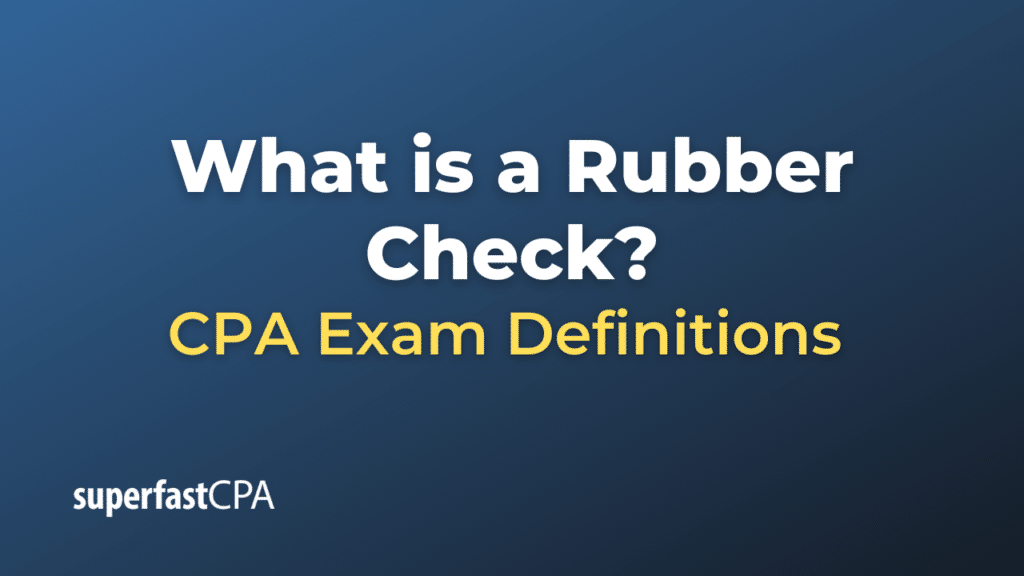Rubber Check
A “rubber check” is colloquial slang that refers to a check that is “bounced” or returned by a bank due to insufficient funds in the account of the person or entity who wrote the check. When a check “bounces,” it means that the bank will not honor the check’s amount because there isn’t enough money in the account to cover it.
When a rubber check is presented for payment, the recipient (or the recipient’s bank) will typically be notified that the check has been returned due to “non-sufficient funds” (NSF). As a result, the recipient does not receive the funds they were expecting, and both the issuer of the check and the recipient might be charged fees by their respective banks. Additionally, repeatedly writing rubber checks can have negative implications on one’s credit score and can sometimes lead to legal consequences.
The term “rubber check” stems from the idea that the check “bounces back” like rubber when presented for payment.
It’s always advisable to ensure that sufficient funds are present in an account before writing a check to avoid the fees, penalties, and potential legal implications associated with bouncing checks.
Example of a Rubber Check
Alex is a freelance graphic designer. He completes a project for a client named Brenda and sends her an invoice for $1,500. Brenda, in return, sends Alex a check for the invoiced amount.
At the time Brenda writes the check, she believes she has enough money in her account to cover it. However, she forgets about an automatic bill payment of $1,200 scheduled to be deducted from her account the next day.
Sequence of Events:
- Brenda writes and sends the check to Alex for $1,500.
- The automatic bill payment of $1,200 is deducted from Brenda’s account the following day, leaving her with a balance less than the $1,500 she owes to Alex.
- Alex deposits Brenda’s check into his bank account two days later.
- Brenda’s bank returns the check to Alex’s bank due to “non-sufficient funds” because Brenda’s account balance is insufficient to cover the $1,500 check.
- Alex’s bank notifies him that the check has “bounced” and charges him a returned check fee.
- Brenda’s bank also charges her an NSF (non-sufficient funds) fee for writing a check without having enough money in her account to cover it.
Outcome:
- Alex is frustrated because he hasn’t received his payment, and he also incurred a fee due to the bounced check.
- Brenda is embarrassed and apologizes to Alex. She has to pay the NSF fee and will need to find another way to pay Alex the $1,500 she owes him. She might also provide compensation for the returned check fee Alex was charged.
- If Brenda repeatedly writes checks without sufficient funds, her bank might close her account, her credit score could be affected, and she could face legal implications.
This example demonstrates the repercussions of a “rubber check” for both the issuer and the recipient. It underscores the importance of maintaining a clear understanding of one’s finances and ensuring funds are available before writing checks.













